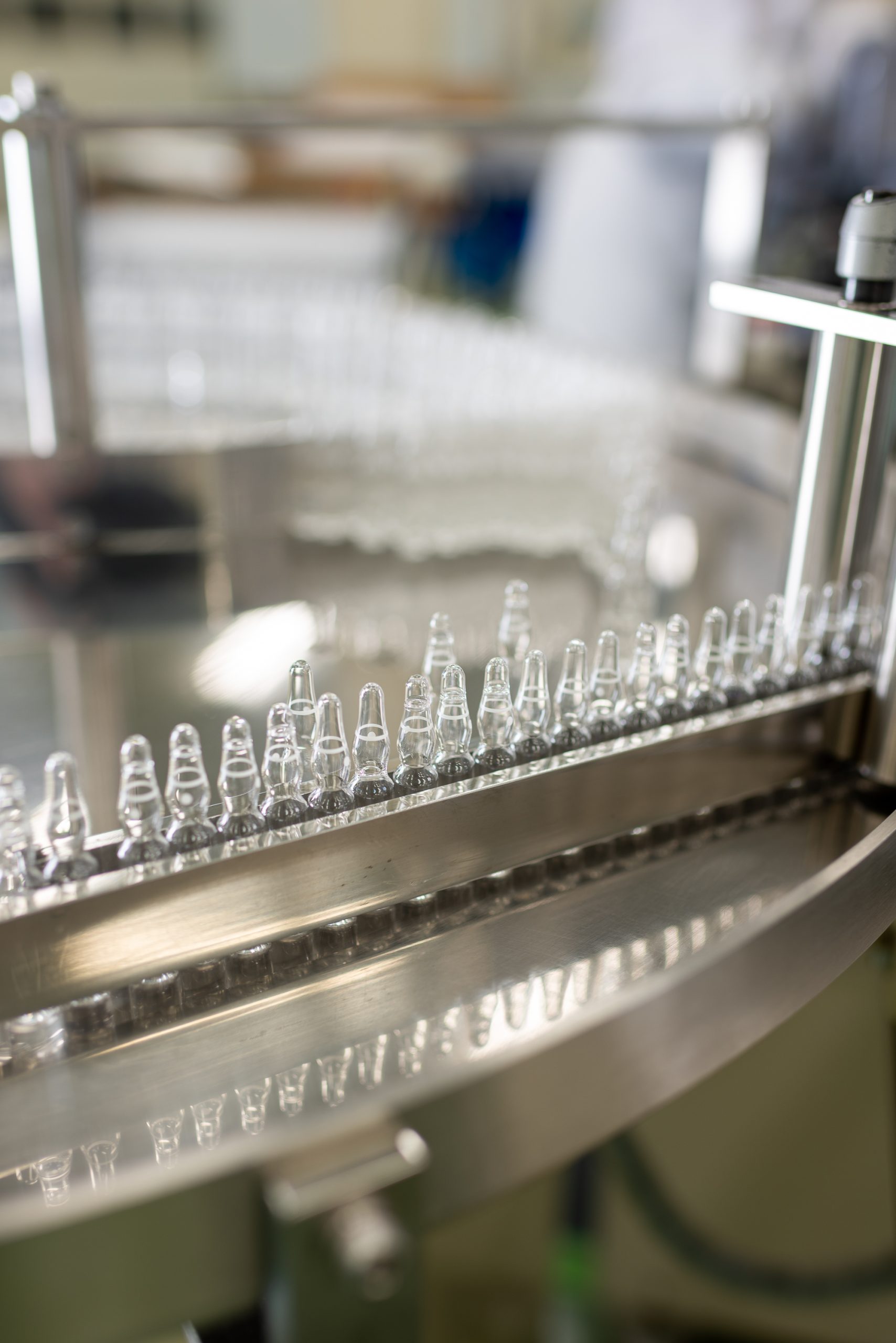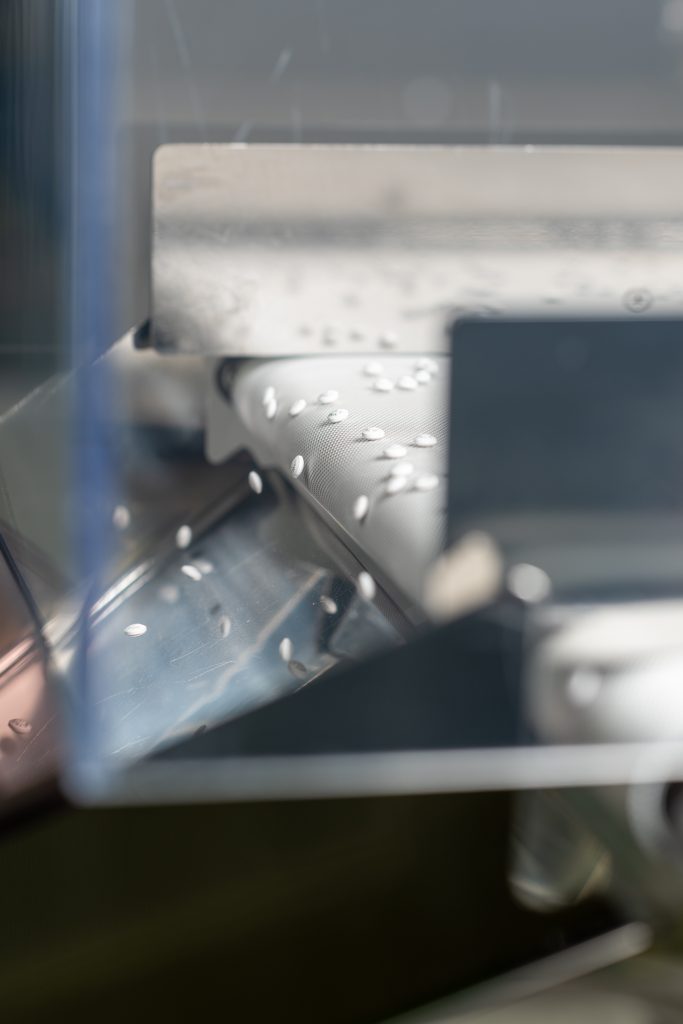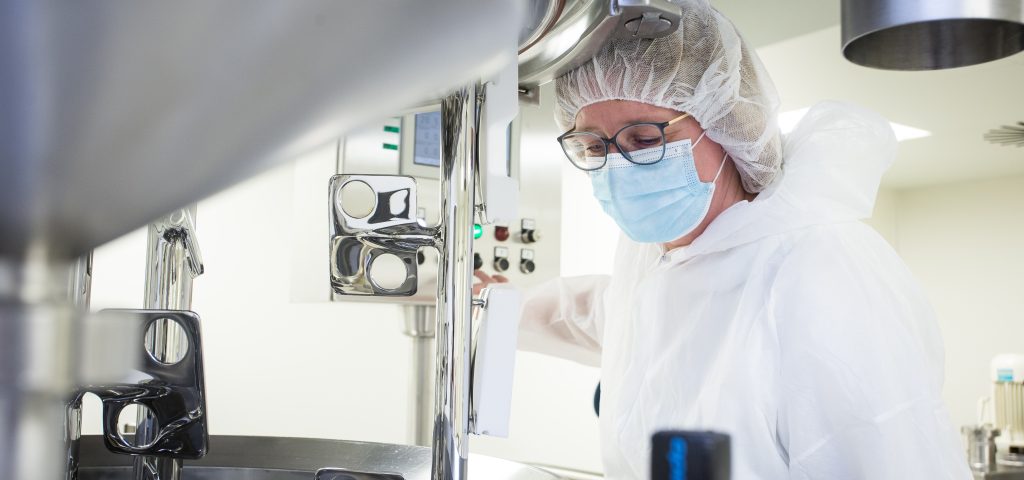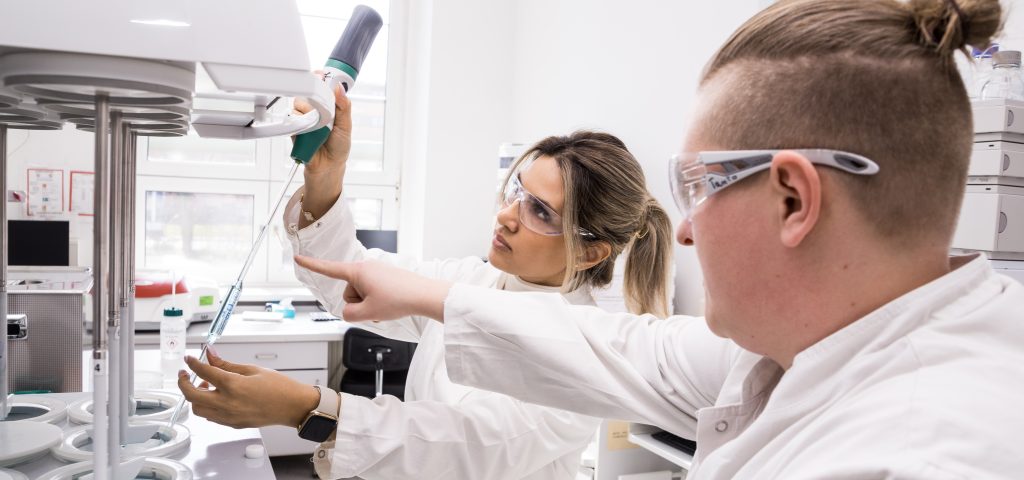- Home
- Commercial Manufacturing
Commercial Manufacturing

Our manufacturing capabilities encompass the manufacturing and packaging of solids, liquids, and semi-solids, all tailored to meet specific needs while strictly adhering to the applicable regulatory rules, particularly the GMP (Good Manufacturing Practice) guidelines. We prioritize open communication, actively listen to our customers, and meticulously implement their requirements
We specialise in the manufacturing of different high quality sterile and aseptic liquids, including:
– Ampoules (glass and polyethylene PE)
– Vials (polyethylene PE, glass, lyophilization, ophtalmics)
– IV Bags
Our manufacturing services extend to a diverse range of non-sterile liquid dosage forms:
– Suspensions
– Emulsions
– Syrups
– Solutions
We specialise in the manufacturing and packaging of semi-solid dosage forms; our main specialties are:
– Creams
– Ointments
– Gels
We offer a complete range of services for the manufacturing of oral solid dosage forms:
– Uncoated tablets
– Film coated tablets
We have vast experience in the manufacturing of suppositories with exceptional quality and efficiency:
– Commercial scale
– Neuroleptics
– Hormones
Our Network of Manufacturing Sites
With over 100 years of experience, Adragos Livron focuses on sterile liquids and suppositories manufacturing. We handle more than 100 molecules and provide stability studies, narcotics handling and analytical testing services.
⟶Our state-of-the-art manufacturing site specialises in ampoules, tablets and visual inspection services. We offer excellent customer service in English and Japanese. It has one of the largest cold storage warehouses in Japan.
⟶Our manufacturing facility in Leipzig specialises in semi-solid and non-sterile liquid pharmaceuticals. With over 100 years of experience, we have a track record of providing first class service and customer focused manufacturing.
⟶Our recently acquired plant is one of the most advanced sterile production facilities in Northern Europe. We specialise in the manufacturing of IV bags, plastic ampoules and vials using Blow-Fill-Seal (BFS) technology and other dosage forms.
⟶We provide Manufacturing solutions for the most demanding commercial requirements, from vials to lyophilization, optalmics and biologics. Additionally, we specialize in small-batch production with a bespoke approach.
⟶Adragos Hub
Find out more about commercial manufacturing

Frequently Asked Questions (FAQs)
What are the types of pharmaceutical manufacturing?
The main types of pharmaceutical manufacturing include solid dosage (tablets, capsules), liquid dosage (syrups, solutions), semi-solids (creams, ointments), and sterile products (injectables, vaccines). Each type requires specific facilities and quality control processes.
How does Adragos Pharma ensure quality in manufacturing?
We implement strict quality control and assurance at every step of the manufacturing process, adhering to GMP standards and global regulatory requirements such as those from the FDA and EMA, to ensure each product meets the highest quality and safety standards.
Can Adragos Pharma handle both sterile and non-sterile manufacturing?
Yes, our manufacturing capabilities cover both sterile and non-sterile products, including liquids, solids, and semi-solids, supported by our state-of-the-art facilities and extensive expertise in handling various dosage forms.
How does outsourcing manufacturing benefit my company?
Outsourcing manufacturing to a CDMO like Adragos Pharma allows your company to leverage specialized facilities, reduce production costs, ensure regulatory compliance, and focus on your core competencies, while we handle the complexities of production.
What is Adragos Pharma’s approach to technology transfer for manufacturing?
Our technology transfer process involves a close collaboration between our development and manufacturing teams, ensuring a smooth transition from R&D to full-scale production. We tailor our approach to meet each product’s specific needs, minimizing risks and optimizing manufacturing efficiency.
How can a CDMO help optimize my drug product’s manufacturing process?
CDMOs offer extensive process development expertise, using advanced technologies and analytical methods to optimize manufacturing processes. By refining formulations, enhancing batch scalability, and implementing cost-efficient strategies, they help reduce production costs and improve product quality, ultimately ensuring a smoother path to market and a more competitive product.









![How To Enter The Japanese Market [Webinar]](https://adragos-pharma.com/wp-content/uploads/2025/03/Visuals-for-the-Kawagoe-webinar-1-for-web.jpg)